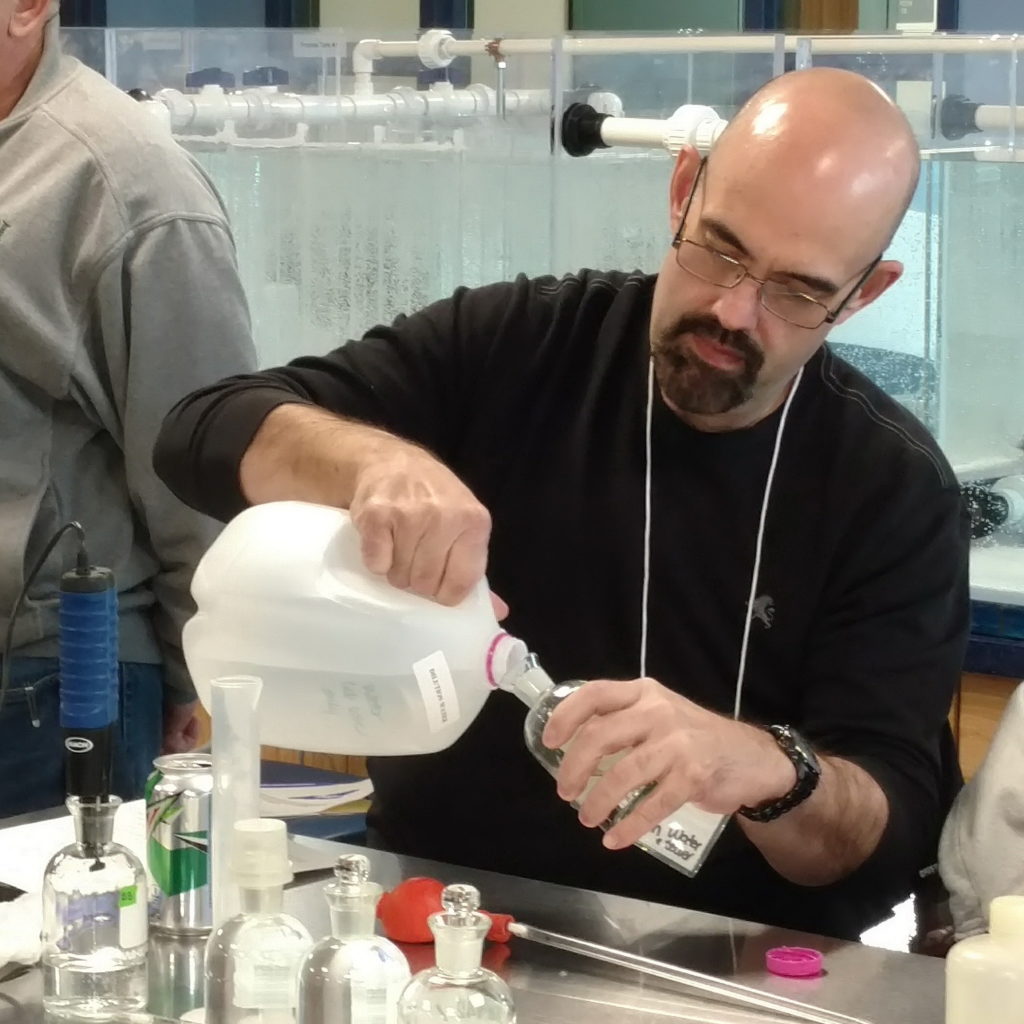At the North Country Convention on April 24 and 25, wastewater and drinking-water operators, and students of the profession, made the most of a new laboratory space at Northern Maine Community College.
The college created the lab to go with a new academic track in water treatment technology. The program enrolled its first students last September.
Convention participants, including NMCC students, had the opportunity to attend up to eight sessions in the laboratory over the event’s two days. The classes included “Hands on [Biochemical Oxygen Demand] Testing” and “Lab Methods Review: pH, [Total Suspended Solids], Residual Chlorine, Settleable Solids.”
As always, the North Country Convention included training sessions on a variety of topics, as well as a trade show, and regulatory updates from state-agency personnel.
State Policies
In keynote remarks, Maine Department of Environmental Protection Commissioner Jerry Reid described the state’s new requirement pertaining to the land application of sludge (the solid and semisolid materials from wastewater treatment).
The Department announced the new policy in late March. The policy requires producers of sludge to test the material before land applying it for three compounds in a class of man-made chemicals known as per- and polyfluoroalkyl substances (PFAS).
The sludge may only be land applied if testing indicates levels of the three compounds below those set in the state’s 2018 revision of its solid waste management rules.
Brian Kavanah, director of DEP’s Bureau of Water Quality, delivered a presentation about the state’s progress toward developing water quality criteria for phosphorus.
The event’s 36 sessions also included “Rehab and Replacement of Underground Piping,” “Lagoon Nutrients 101,” and “PFAS: A Brief Introduction and Dealing with Sample Collection.”
Serving All of Maine
The biennial event was coordinated under the umbrella of the Joint Environmental Training Coordinating Committee (JETCC) by NEIWPCC staff members. It is designed to meet the training needs of environmental professionals who live and work in Maine’s remote Aroostook County. “The County” is three or more hours away from most of JETCC’s other training offerings in Maine. Participants could opt to earn wastewater or drinking-water training credit hours for most sessions, including those in the lab. In total, more than 185 people participated in this year’s event.
